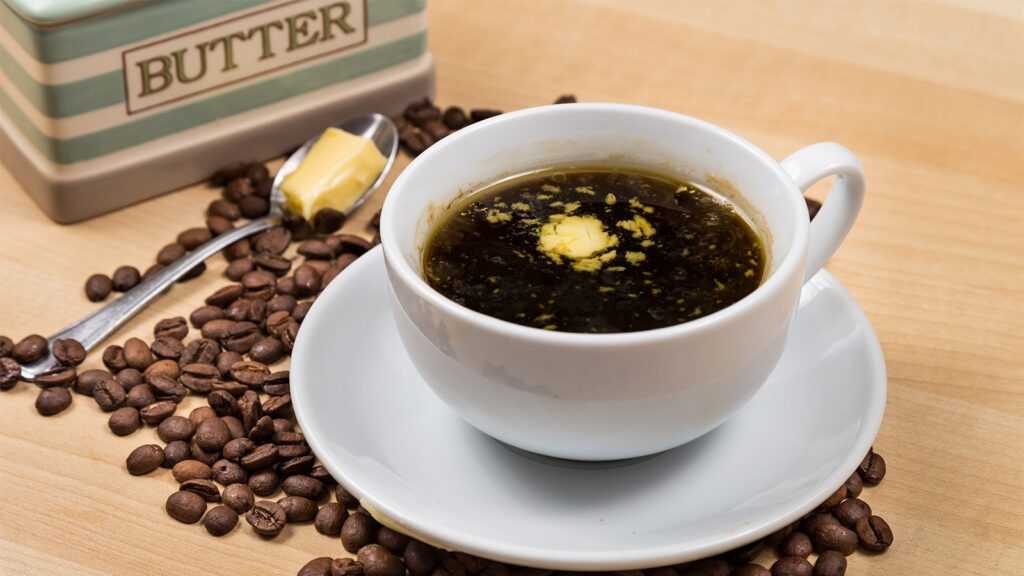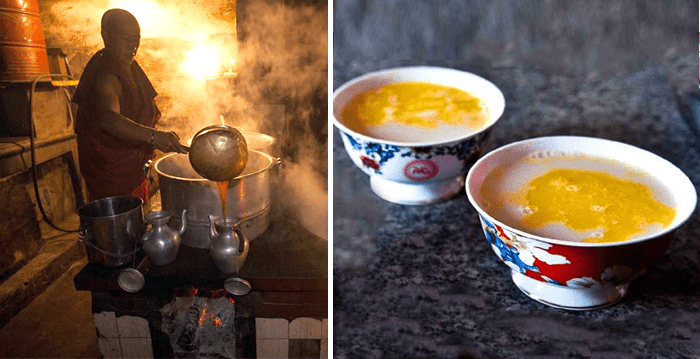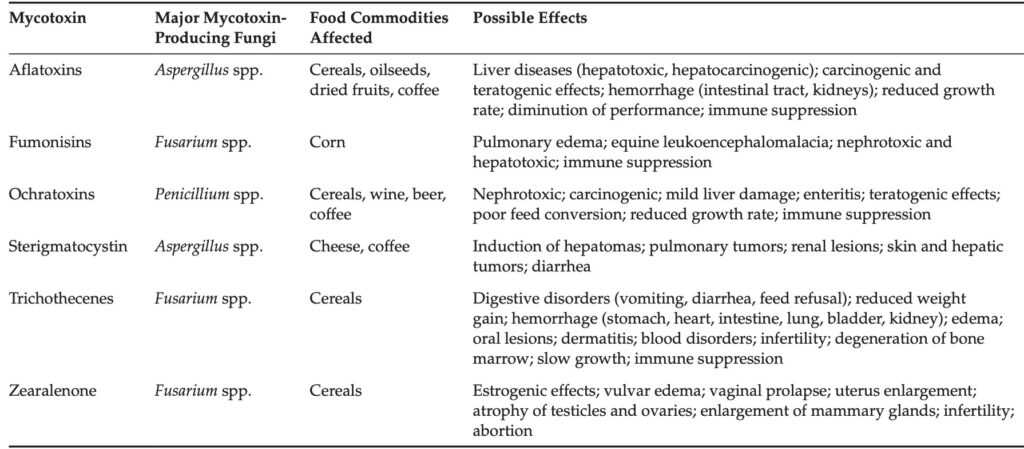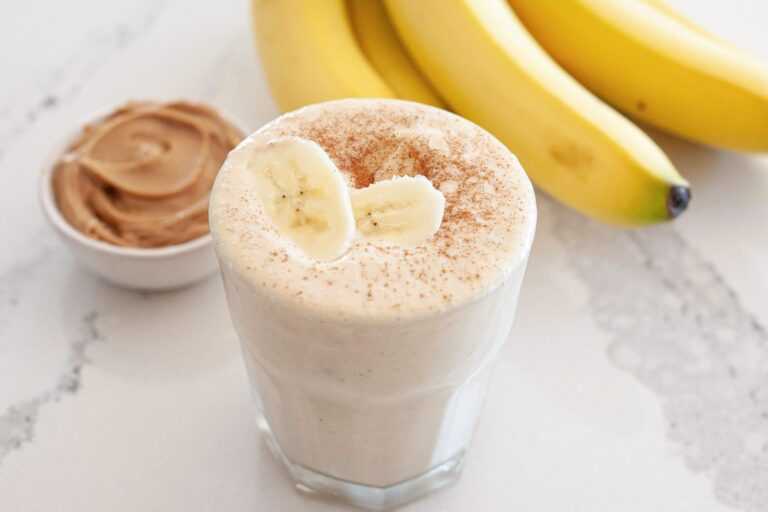Butter in coffee??
Sounds weird for most people, who have been relishing their favorite coffee since decades now.

The trend of adding butter/ghee/coconut oil etc. in coffee came in limelight by an American Entrepreneur, author and a promoter of low-carb-high-fat diet, Dave Asprey.
Asprey named his coffee as the ‘Bulletproof Coffee’ and his diet as the ‘Bulletproof Diet’. But like many others, he has been criticized for making misleading health claims about his diet and adding drinking black coffee with added butter/ghee/coconut oil.
And of course, one thing Asprey was great in, was marketing. He founded an entire nutrition company behind the concept of Bulletproof nutrition. Today his website contain a range of health supplements and other products.
But where did this idea of adding butter in coffee came from? It came to Asprey, while on a hiking trip to Tibet. Where he found people drinking Butter tea, which is made of Yak Butter, and a type of fermented tea called ‘Pu-erh tea’. Drinking multiple cups of butter tea is a regular part of Tibetan lifestyle.
One of the benefits of butter tea in the Tibetan region is not just the antioxidant benefits of tea, but the high calories in butter, which helps them sustain in the extremely low temperatures, where the body burns much more calories than at higher temperatures.

This is because, during winters the body has to regulate its temperature, to naturally produce heat. This is done by either shivering or non-shivering thermogenesis activities. Shivering produces heat with contracting muscles causing some of the energy to show up as heat. Non-shivering thermogenesis occurs in brown adipose tissue found in mammals.
When our bodies are exposed to cold air, or low temperatures, our adrenal glands get activated, as it’s a type of stress on the body. Adrenal glands, in response to cold, release the ‘fight or flight’ hormone, adrenaline (epinephrine), which forces your body to shoot up its metabolism, thus burning more fat.
A study saw that, even a short term exposure to cold results in significant increase in fat burn. That is also one of the reasons why mountaineers are told to eat more fat during extreme cold as the body loses a lot of fat at higher altitudes and fat is required for insulation from cold.
In fact, Yak butter is considered in high regards in Tibetan culture, and is consumed many times a day, in various dishes.
Asprey took this as an inspiration, and developed the concept of Bulletproof coffee. He initially experimented with various butter drinks and came up with the recipe of bulletproof coffee.
He further added marketing gimmicks of using grass-fed butter, instead of conventional butter; and using special coffee which is free of mycotoxins.
Asprey also uses coconut oil or MCT oils in coffee, which he claims to sharpen the mind. He recommends to consume this coffee, first thing in the morning, as breakfast. This one of butter coffee, contains app. 400 calories, which acc. to Asprey, boosts your energy, burns fat, and suppresses your hunger pangs.
However, all the claims done by Asprey with Bulletproof coffee have been clearly debunked. Let’s see the truth behind the claims.
- The Mycotoxin Myth
Mycotoxins are toxic substances produced by fungi which can cause dangerous diseases, and even deaths in humans. The term mycotoxin is derived from the Greek word mycos, for fungus, and the Latin word toxicum, for poison. Nearly 400 types of mycotoxins have been identified so far.

Mycotoxins can grow on grains, cereals, legumes and coffee beans, if improperly stored. In fact, 25% of the world’s agricultural crops are estimated to contain mycotoxins. In the particular case of coffee, the prevalence of contamination is increased, particularly contamination with ochratoxin A (OTA) and to lesser extent with aflatoxins and sterigmatocystin.
The favourable conditions for mycotoxins production are instigated with poor hygienic conditions at the time of transportation and storage, high temperature and moisture content and heavy rains.
Firstly, mycotoxins pose no risk to you, when you drink the commercially available coffee. Because, studies are very clear on the fact that, good agriculture and postharvest practices can prevent and reduce contamination. On the other hand, coffee roasting is an effective measure for reducing mycotoxins. Also, mycotoxins amounts are regulated for roasted and instant coffee.
In depth review studies have stated that, there is no evidence to suggest that OTA is acutely toxic in humans from consumption of coffee or other exposure sources.
Acc. to Harvard trained physician, David Bach, “Mycotoxins themselves are real, but coffee producers are really good at getting rid of them. You don’t have to worry about them in the major supermarket brands, and even if you did, there is no evidence that supports the idea that mycotoxins make you sluggish or unwell“.
2. Suppression of Hunger & Weight Loss
Here is the recipe for making Bulletproof coffee:
- Brew about 1 cup (250–350 ml) of coffee.
- Add 1–2 tablespoons of coconut oil.
- Add 1–2 tablespoons of unsalted butter, or ghee.
- Mix all ingredients in a blender for 20–30 seconds until it resembles a foamy latte.

This would be app. 450cal worth of beverage. Though you can limit it to, 200-250cal, if you reduce the amount of fat added.
When it comes to suppression of hunger pangs, that’s an obvious effect, as you are consuming 250-500cal of high fat beverage in the breakfast. The same would happen with any form of high calorie beverage or solid food.
For e.g. a shake made of 500ml full cream milk, 2 tablespoons of peanut butter, 1 medium sized banana, 2 scoops of whey, & 2 tablespoon honey, would come out to be app. 900-1000 calories. This would be 2 big glasses of thick shake. Imagine having half (one glass) of it in breakfast. Will you need anything else to supress your hunger.
But what if you don’t take these calories in account and start having bulletproof coffee every day. The answer is simple, you will end up getting fatter.
So, if you like to add butter/ghee/coconut oil in your coffee, make sure you are having them within the limits of your daily calorie requirements.
3. It’s not good for your Brain
Coffee in itself is a great beverage for health, and has many health benefits including neurological ones. Multiple studies have shown that, coffee affect mental states such as increasing alertness and attention, reducing anxiety, and improving mood.
However, there are absolutely no special cognitive benefits of adding butter/ghee/coconut oil/MCT oils in your coffee. Studies have very clearly shown that, there is no benefit of Bulletproof coffee over black coffee for improving cognitive performance, or memory related tasks.
But, I personally like to add coconut oil in my black coffee, and this is simply due to its taste, not the health benefits as such. However, I make sure that I do not go insane on adding multiple tablespoons of coconut oils and butter/ghee in my coffee.
All I do is add a tablespoon of cold pressed extra virgin coconut oil in my black coffee. You can do that with butter/ghee. The total calories in this case would remain limited to 100-120. And, this way you can relish your coffee with added fats, without worrying too much about calories.



